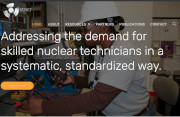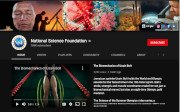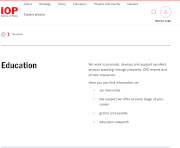
Regional Center For Nuclear Education & Training (RCNET)
gonuke.org
Indian River State College is home to the Regional Center for Nuclear Education and Training (RCNET). The Center ensures the demand for skilled nuclear technicians is met in a unified, systematic way in the Southeastern United States. Some of the goals of RCNET are to create a comprehensive curriculum for technician tracks, develop or enhance training programs at the regional colleges, provide career paths to higher education and undergraduate research, and provide remote access to expensive and unique training components. This Regional Center serves the nuclear industry as a training resource, curriculum repository, and source of expertise, while improving communications and collaboration across the industry. RCNET is supported by partnerships with colleges across the region. The partnerships include fifteen colleges, three universities and twenty seven industry partners. Collectively, this group represents a critical mass of training and industry experts. On the site, visitors will find educational and professional development resources, academic and career materials, and a resume bank for students to contribute to and for industry representatives to search (and hire!) from.







